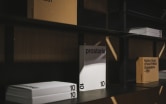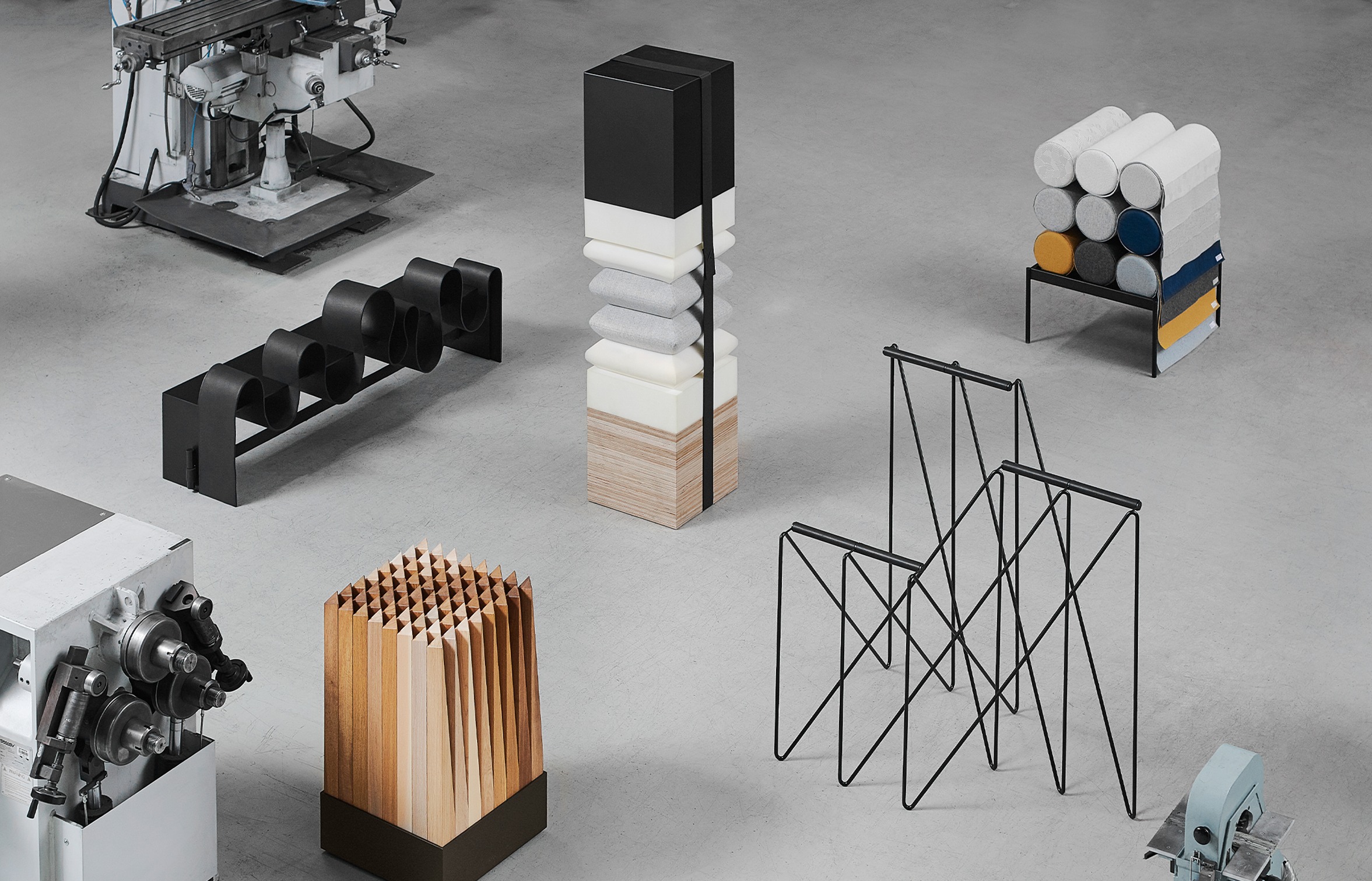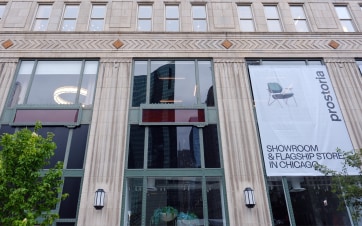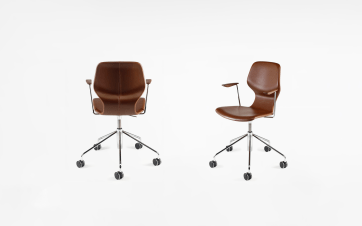

Sustainabilty is Written in our Core
At Prostoria, sustainability starts with the selection of natural production materials and design process. We give back by creating responsible furniture whose functionality, durability and comfort result in timeless aesthetics. Štof by Prostoria is our circular economy platform through which we actively pursue our sustainability policy.
20 — 10 — 2021
We always prefer to build, transform and support creativity in our surroundings. We have an ongoing love affair with natural materials, because they are already perfectly designed to withstand different life stages and time, becoming more beautiful as they age.

Our factory operates as a research lab where sustainability is embedded in the design process and where we develop prototypes and produce from top quality materials. By sourcing solid wood locally and transporting our furniture directly from our factory with vehicles that are loaded at full capacity, we reduce our CO2 emissions. Prostoria holds the FSC® (FSC C136756 Chain of Custody) certificate, the ISO 9001:2015 Quality Management System Certificate and adheres to the ISO 14001:2015 Environmental Management System.
Štof by Prostoria
Štof by Prostoria is our platform for the circular economy and a shop in Zagreb where we sell all the textiles from our previous collections, offering cushions made of smaller pieces of leftover textile. We also support the restoration of vintage furniture, which is revived by our craftsmen. The latest Štof project comprises two kinds of tote bags designed from previous Prostoria textile collections. And small bits of fabric waste are generally transported locally for industrial recycling.

It is part of our social responsibility agenda to provide leftover textile to kindergartens, schools and colleges for their arts and crafts programmes. In 2021, we launched collaboration with the Faculty of Textile Technology in Zagreb based on 1000 metres of fabrics from our previous collections. Students will use the material for developing their design ideas.
Wood
Croatia is home to lush forests. They make up 49.3% of the country’s landscape from which we source woods: Slavonian oak, walnut, ash, pine and beech. We also import other types of wood including teak, iroko and larch from their countries of origin. We hold the FSC® (FSC C136756 Chain of Custody) certificate for the purchase of wood. Our carpentry is more than a production facility; it is a care facility for wood treated to achieve product excellence. The whole timber-processing cycle is controlled, from cutting and pruning to the final production phase.

Textile
Since the very beginning, we have embraced natural materials as the core of our design process. Eighty-five per cent of the fabrics we offer in our product collections are of natural origin. Over the years, we have selected partners who most dedicatedly manufacture high-end textiles from natural wool and cotton fibres, enhancing original features with their designs using environmentally friendly technologies. Some are not only leaders in the textile industry but also in their innovative approach to sustainability.

Leather
In our upholstery department, working with leather is an art; we treat this exquisite material as haute couture. For example, sturdy leather is an integral part of the Strain chair’s construction, while the supplest leather is used for the Cloud sofa to further enhance its superior comfort. In our design process, we select only the best leathers, which we source from our trusted EU partners who comply with all the EU rules and regulations in order to ensure the highest standards of animal welfare.

Metal
Each of our product designs has directed us to innovate our production and invest in technology. The design of the metal constructions for the Polygon and Strain easy chairs pushed us to research the various possibilities that metal as a material can provide, as well as the relevant manufacturing technology. This identified the need to establish our own state-of-the-art metal workshop. Ultimately, the bent metal construction has become a signature design, and our metal workshop has grown into a lab for concept development, prototyping, tooling and bulk production. Here, engineers and master welders are solving the most complex technological problems, with their creative thinking and excellent execution.

Foam
Since our very first sofas and sofa-beds, Prostoria has been making a statement with its mastery of comfortable seating. The combination of various kinds of foams that interact with other materials in the furniture production process defines the volume, ergonomics and the overall experience. We only use the best quality, highly resilient polyurethane and moulded foams, all of which are recyclable. We are currently preparing the premises for moulded foam production in our factory, this being the final segment of furniture production placed under our roof. Soon, our upholstered furniture will be created with moulded foam that is most suitable for achieving innovative forms, and absolute precision in design and sustainability.

Waste Management
All wood waste, such as sawdust, is sold on to the wood-pellet industry, while small wood residues are sold locally as firewood. Metal waste is sent to a foundry where it is melted down and prepared for reuse. Waste that is hazardous to the environment, such as wastewater, glue and packaging residue, is managed by outsourced specialized companies. Prostoria holds the ISO 9001:2015 Quality Management System Certificate and adheres to the ISO 14001:2015 Environmental Management System.
Art in the Factory
By using the remnants of production materials which are classified as “waste”, the sculptor Anđela Vilić, who is the Head of the Quality Management System at Prostoria, regularly creates art installations for Prostoria’s Flagship Stores in Croatia. In order to mark the occasion of the “Prostoria 10” exhibition, she created nine art installations in which she transformed waste into works of art, incorporating a new meaning into them.


Related
Other stories

Prostoria at NeoCon 2025: Evolving Comfort
At NeoCon 2025, Prostoria introduces two standout novelties that reflect the brand’s ongoing commitment to architectural clarity, expert craftsmanship, and functional elegance. With presentations at both its permanent showroom in The Mart and its flagship store in River North, Prostoria invites visitors to experience the future of comfort through two new distinct designs.
04 — 06 — 2025

Introducing the Upholstered Oblikant at NeoCon 2025
Prostoria’s new upholstered version of the Oblikant chair will debut at NeoCon 2025 as part of our permanent exhibition at The Mart in Chicago. This refined evolution of the iconic S-shaped design introduces added comfort and warmth with Kvadrat’s Divina fabric and premium leather. While enhancing tactility and acoustic performance, the chair retains its radical silhouette, minimalist construction and adaptability - ideal for conference rooms, dining areas and collaborative spaces alike.
27 — 05 — 2025